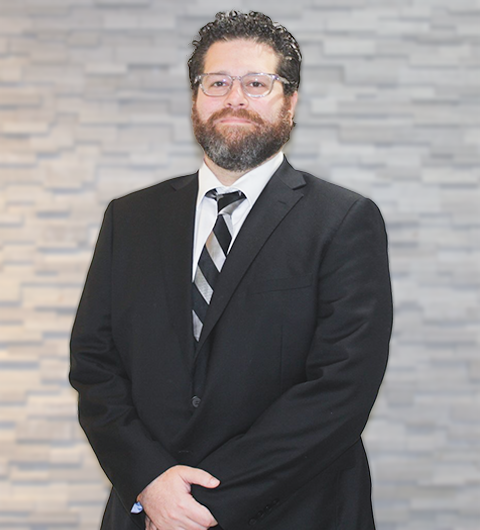Michigan Social Security Disability Lawyer
Wrongful denial of Social Security Disability (SSD) or Supplemental Security Income (SSI) to you or a loved one can cause many financial hardships. Such income may be reliant to families with disabled members – especially when paying bills or supplying food in their homes.
Many Michigan citizens are commonly unaware of their legal rights to benefits offered by the Social Security Administration (SSA). The Michigan social security disability lawyers at Elia & Ponto are suited to handle Michigan Social Security Disability Appeals and Initial Applications. A Michigan Social Security Disability Lawyer may also be able to help with Supplemental Security Income appeals. For read more about Michigan No Fault Insurance click here.
Have you or a loved one been denied Social Security Benefits or plan to apply for benefits in the near future? Get in touch with an experienced Michigan Social Security Disability Lawyer at Elia & Ponto Today!
Michigan Social Security Disability Lawyer
- When you call 855.75.EPLAW we will immediately assess the general merits of your claim and make a preliminary determination as to whether we should further investigate your claim. If we feel you may have a claim, we will schedule a formal meeting with you that will generally take place within 24 hours of your phone call. Remember, the initial compensation is FREE, and you will never owe our office anything until and unless we collect on your behalf.County
- If you are not able to come to our office, a representative of our office will visit you at your home, the hospital or any other public location. During this time we will dive into the details of your incident in order to further investigate your situation and begin to derive an efficient plan to pursue your claim.
- After the initial consultation, our team members will put your claim into motion as intelligently and efficiently as possible.
- During all aspects of the claim, we will keep you updated and informed. When decisions need to be made, we will gladly provide our professional opinions when need be, but we will also allow you to consult your friends and loved ones. Many of these changes could be life altering, and at The Law Firm of Elia & Ponto, we do not want our clients to feel pressured into making any decisions.
- Throughout the life of your claim, it is always our goal to obtain the maximum possible recovery that your may be entitled to.
- Remember that The Law Firm of Elia & Ponto works on a one-third (33%) contingent fee basis, which means that we will provide all upfront costs in pursuing your claim, and that you will not owe our office anything, unless and until, we make a recovery on your behalf.
FAQ’s about Social Security
Am I able to apply for Social Security Benefits by myself?
Yes – as the number of times you can apply for benefits is not limited. Individuals can reapply for consideration when they feel as though they qualify for benefits. A Disability lawyer in Michigan can assist you with this process.
What do I do if my Social Security Benefits claim in Michigan was denied?
In the event that the SSA denies an initial application for benefits, which is not uncommon, action must be taken immediately. In order to appeal the denial and preserve a claim, the applicants have approximately 60 days after the date stamped on the letter. Our Michigan Social Security Disability Lawyer are here to help you.
What do I get with Michigan Social Security Disability Insurance Benefits?
Such benefits may include family benefits, individual benefits, and Medicare medical coverage – however, the amount of compensation is dependent on a formula in both the Social Security Act and the Internal Revenue Service.
How do I know if my disability qualifies for Social Security Disability Benefits?
An eligible “disability”, under the Social Security Act, is defined as the “…inability to engage in any substantial gainful activity by reason of any medically determinable physical or mental impairment which can be expected to last for a continuous period of not less than 12 months or result in death”. Talk to a family doctor and contact our office about the benefits qualifications, especially if people are unsure about their eligibility.
Do I still qualify for Social Security Disability Insurance Benefits even if I have not worked in years?
In order to qualify, the SSA requires a specific amount of Social Security earnings also known as work credits. If you have worked for five out of the last 10 years, it is likely you qualify as this acts as a general rule. To determine qualification, contact the SSA or consult a disability lawyer in Michigan.
Am I still able to receive benefits even though I have a psychological condition that prevents me from working?
The most critical aspect of defining a disability is that a licensed physician establishes evidence that states you are not able to work for at least one year. The Social Security Act defines a disability as either a combination of physical & mental limitation, or either one separately.
My disability has become worse after I was denied Michigan Social Security Benefits last year. What Should I do?
Speaking with a Michigan social security attorney would be an excellent idea at this point. A disability lawyer in Michigan can help you with the application process as there is no limit to how many times you can apply for Michigan social security benefits.
How long do Michigan social security benefits last?
The SSA may periodically review your condition by requesting a medical assessment to determine eligibility. So long as an individual meets all additional SSA requirements and remains classified as disabled benefits shall be receivable.
Alcoholism or drug addiction was the root cause of my Disability. Will I still be able to qualify for Michigan Social Security Benefits?
According to theSocial Security Act in sections 223(d)(2) and 1614(a)(3), benefits may not be available if drug addiction or alcoholism acts as a contributing factor to the determination of a disability. Nonetheless, consultation with a disability lawyer in Michigan is essential to determine potential claim eligibility.
How long does it take to receive my Michigan Social Security Benefits?
Generally, it takes 4 to 6 months for an initial application to be processed. It can take 12 to 18 months if the request is denied with a filed appeal; although this is dependent upon the ODAR. It will take another 2 to 3 months following said hearing to make the decision plus another 1 to 2 months to receive your money if you win.
Is there anything I can do about my expenses during the time my case is pending and I am unable to work?
Many citizens who apply for Michigan social security disability benefits run into financial issues during the time their case is pending. There are two suggested options for individuals with financial concerns: first, individuals can apply for DHS benefits (cash assistance, food stamps, and Medicaid), and secondly, individuals can contact local organizations like the salvation army.
How do I see a physician even though I do not have insurance?
Many social security claimants are unfortunately in the unenviable position of being without medical insurance when they are out of work. It is essential for individuals to get medical care as your health is valued. Additionally, medical evidence must be provided that substantiates your claim for disability in order for an ALJ to review your case. In many counties, there are community programs that individuals can look into. Although some claimants have been known to go to an emergency room for medical care, the 211-United Way may also be able to help locate a clinic/doctor to reach out for little to no cost.
Is there anything I can do to speed up my Michigan social security disability case?
Circumstances exist in which a hearing can be scheduled faster, however, this is less common as there is an SSA backlog of people waiting for their claims to be heard by administrative judges. For instance, the SSA has defined selected terminal diseases that qualify an applicant for a faster hearing. A Disability lawyer in Michigan can help you with this.
Do I have high chances of winning my Michigan Social security disability case?
One of the best ways to assist with your case is to continue your prescribed treatments and follow your physician’s advice. No disability lawyer in Michigan can tell you exactly how your case will turn out, but the consistency in your cases medical information is a big factor.
Is it possible to have my loved ones answer questions on my behalf at my Michigan social security disability hearing?
The individual who made the claim is usually the party that testifies at the Michigan social security disability hearing. If that party, however, has pre-existing issues or new dilemmas that arise such as injuries which impede their mental capacities such as head injuries, mental illness, etc. Under these circumstances, a disability lawyer in Michigan may suggest that another party offer additional testimony.
What do I do about my Michigan Social Security disability case if I am being evicted or facing foreclosure?
If an eviction or foreclosure notice is received, a hearing may be scheduled faster due to serious economic needs. However, this is ultimately decided upon the SSA as a disability attorney in Michigan cannot guarantee the acceleration of a hearing. Keep in mind that the vast majority of people waiting for their hearing with disabilities have financial problems and that the SSA will only look at most dire situations when it comes to a serious disability request.
What should I put on my Michigan social security disability benefits application to improve my chances of winning?
Working with a disability lawyer in Michigan can improve your chances of winning your case. Specification of your disability, functional limitations and a list of doctors you regularly see as including prescribed medication(s) and/or treatment(s) is essential information for an application.
What will my Michigan Social Security disability hearing be like?
A hearing such as this is relatively informal. Before you testify, you and any other witnesses will be put under oath. You will answer questions asked by the Judge and your representative (if you have one present). In response to the Judge’s hypothetical questions about what type of work you can do in view of your disability, a vocational and/or medical expert will testify on behalf of you. The judge will issue a written decision within 1-2 months, as it is unlikely for a decision to be made the day of the hearing. A copy of that decision will also be sent to you by mail.
Will going back to work have any affect on my Michigan Social Security Disability case?
The claimant is only individual who can decide when and if you should go back to work. There are many variables involved, therefore, the answer is dependent on your personal situation and circumstances. If you earn more than $ 1040 a month (for 2013) while working, you are engaged in what the SSA calls “substantial gainful activity” and are not considered disabled. However, if you try to return to work but are unsuccessful after a very short period of time due to your disability, the SSA may not hold you against it. If you have been out of work for more than a year due to a disability and can then return to work, you may be eligible for “closed period” benefits.
Meet Our Attorneys
At Elia & Ponto your case will be handled by a top rated attorney, not a paralegal or law clerk. We offer a free, no obligation case review and we will represent you on a contingent fee basis.

Sam E. Elia
Co-owner and Managing Partner
Member of the Michigan Bar Association and active member of the metro Detroit Chaldean community. Mr. Elia received his Bachelor’s Degree in psychology from Wayne State University (2008) and his Juris Doctor from The University of Detroit Mercy School of Law (2011).
View Profile
Adam P. Ponto
Co-owner and Managing Partner
Member of the Michigan Bar Association and Michigan Association for Justice member. Mr. Ponto received his Bachelor’s of Science in Economics from The Ohio State University and his Juris Doctor from The University of Detroit Mercy School of Law.
View Profile
Kevin Kashat
Attorney
Attorney Kevin Kashat is both a member of the State Bar of Michigan and a lifelong resident of Metro Detroit. Mr. Kashat earned his Bachelor’s degree from Wayne State University and subsequently earned his Juris Doctor degree from the University of Detroit Mercy School of Law. While in law school.
View Profile
Sally Moore
Attorney
Licensed in Michigan 1996 and New York 2011. Educated at the University of Detroit Mercy Law. Over 20 years in litigation initially with the Wayne County Prosecutor’s Office handling criminal matters on all levels throughout the Wayne County Criminal Court.
View Profile
Howard Cohen
Attorney
Mr. Cohen received a full merit scholarship after high school to attend Wayne State University in Detroit. He graduated in 1984 with a B.S. degree in Criminal Justice with distinction. Following undergrad, Howard attended Wayne State University Law School.
View Profile
Andrew Kas-Marogi
Attorney
Attorney Andrew Kas-Marogi received his bachelor’s degree from the University of Detroit Mercy and his Juris Doctor from Wayne State University Law School. He joined Elia & Ponto as a law clerk in 2021 and has worked closely with personal injury cases ever since.
View Profile
Darnell Smith
Attorney
Darnell Anthony Smith is a graduate of the Western Michigan University – Thomas M. Cooley Law School in Auburn Hills, Michigan and was admitted to the State Bar of New York in 2020. Darnell was later admitted to the State Bar of Michigan in 2022.
View Profile
Mariam Kassid
Attorney
Attorney Mariam Kassid is a member of the State Bar of Michigan. Ms. Kassid graduated with honors from Wayne State University where she received her Bachelor’s Degree in Criminal Justice as well as Western Michigan University – Thomas M. Cooley Law School where she received her Juris Doctorate in…
View Profile
Michael Canner
Attorney
As a personal injury attorney, I represent clients who have suffered injuries in an accident. I also represent clients when an insurance company decides to stop providing you with your benefits even after years of having paid your premium.
View ProfileMichigan Social Security Disability Help
For more details, please speak with a Michigan Social Security Disability Lawyer at our firm right away.
Call Us Today
(855) 75-EPLAW
OR
How We Can Help You

No Fault Claims
Michigan is a unique State in that it is one of the few in the Country that employs a “No-Fault...
Read more
General Negligence
The legal concept of "negligence" is central to most personal injury cases. When someone fails...
Read more
Hit & Run / Uninsured Motorist Claims
Involved in a hit an run accident? Involved in an accident where the driver responsible was uninsured?...
Read more
Railroad Accidents
An Elia & Ponto attorney is able to file lawsuits for train passengers who are injured due to the...
Read more
Dog Attacks
The law in Michigan surrounding dog bites is very clear. The owners and keepers of dogs in Michigan...
Read more
Apartment Complex Liability
Current Michigan law affords certain rights to tenants. Under current Michigan law, landlords must...
Read moreDifference between SSD and SSI
The entitlement benefit program that is run by the government is known as Social Security Disability (SSD). This program’s primary source of funding is from the payroll taxes which is paid by individual claimants. By regulating social security taxes individuals, such as employees, employers, and self-employed workers, are able to build up their benefits. After contributing for numerous years, beneficiaries of SSDI will be considered to be insured. Parties that receive accumulated benefits of a beneficiary can include work history of an individual, husbands or wives, or parents. SSD can be referred to as Survivors & Disability Insurance, Social Security Disability Insurance and Retirement Insurance.
There is additional information regarding the SSDI that is important to be aware of. For instance, there is a five-month standard waiting period that must be considered for requirements and procedures. Therefore, following the occurrence of a disability, benefits of the SSA will not begin to be offered for that initial five months. The amount of monthly benefits received following the five months is dependent on factors such as earnings records, similar to pension benefits for social security.
The work history of individuals prior to disability is taken into consideration by the SSA. Social Security Disability Benefits (SSD) are granted to disabled workers who have satisfactory previous income to meet the requirements of the Social Security Administration (SSA). Individuals will have sufficient work credits so long as an individual has worked for five out of the previous 10 years.
Additional factors which can determine SSD benefit eligibility include:
- Age of an individual
- Date of disability diagnosis
- Severity of condition
- Impairments that disability causes
- Accumulation of social security credits (20) within the last 10 years, prior to the onset of disability
- Recognition of such condition by the Social Security Administration – including proper diagnosis and medical records
The government program which provides an “on a need basis” for individuals with limited resources and income is known as the Supplementary Security Income (SSI). Eligibility of benefits from the program are available to any individual who owns limited assets. Revenues from taxes support the program, and the benefits distributed are dependent on both state and federal laws that consider numerous factors – including the location of the resident, received amount of income, and other individuals whom such individual lives with.
Despite the Social Security Administration managing both Supplementary Security income and the Social Security Disability Insurance which share medical eligibility similarities, each are very distinct programs. SSDI, for example, has higher approval rates than the SSI average. This is due to SSDI applicants generally having a higher income than SSI applicants. In addition, applicants with a longer history of work receive more precedence from a judge – many SSI applicants lack this factor.
If you or a loved one plans to apply for such benefits or finds it difficult to receive such benefits and are seeking immediate help, contact our qualified Michigan Social Security Disability Lawyer today for a free consultation.
Benefits for family members of a person approved for SSD
Those who get approved for SSD may extend their benefits to their family members. However, these shared family benefits still depend on the disabled earner’s initial earnings. The Social Security Disability benefits can also be eligible for the spouses and children of a deceased beneficiary so long as they had sufficient work credits.
Financial dependence on the disabled worker receiving such benefits is the primary requirement of family member(s) seeking benefit extension – these benefits are also referred to as auxiliary or dependent benefits.
It is important to note that those who already obtain SSI are excluded from receiving the benefits.
SSD Basics
- Medicare
- The amount of income eligible for SSD work credits is not limited
- Individuals must accumulate sufficient work credits as benefits are derived from personal earnings
- Resources are not limited
Amount of Benefits
Generally, the total amount of benefits which is given to a family member is within 50 to 100% of the eligible worker’s benefits. The level of dependency and relationship to the leading beneficiary can determine the amount each family member could receive.
Considerable factors include are, for example, whether the applicant is a…
- Disabled child
- Minor
- Spouse of retirement age
- Young parent seeking assistance in raising children
The total amount payable to a family member in this regard could thus be limited. Individual beneficiaries will receive a total which is dependent on such benefits already obtained by the beneficiary and the number of others who applying for a portion of the benefits. For that reason, total benefit amounts range between 50 to 80%.
The SSA developed three primary rules which govern the Maximum Family Benefit (MFB) in order to obtain a more precise definition of the maximum benefit obtainable.
- The MFB should not exceed more than 85% of the disabled family member’s average monthly earnings, also known as average indexed monthly earnings or AIME.
- The disabled member’s personal insurance amount (PIA) total should not be a greater amount
- The PIA of the family member with disabilities cannot exceed 150%
Effects of Family Benefits on Disabled Worker’s Benefits
Whether their amount will be reduced when they seek benefits from other family members is a common concern for most SSDI beneficiaries. The income of an individual, their savings, assets, other available benefits, and income generated by other household members are evaluated by the SSA. A divorced parent who is a beneficiary, for example, should not be objected to their child’s Social Security Child benefit applications. Age and disability-based benefits would not count towards the maximum family benefit in the case of divorced spouses – apart from when a child is under care of the spouse. The assumption is that a parent’s account could be benefitting the divorced spouse.
If you or a loved one are planning to apply benefits or are having trouble receiving such benefits and are seeking a fast, informative, and free consultation – contact our qualified Michigan Social Security Disability Lawyer today.
Supplemental Security Income benefits
The Supplemental Income Security Benefit (SSI) is primarily for people with low incomes. The SSA evaluates the income of an individual, their savings, other available benefits, assets, and income generated by other household members. Eligibility is determined by assessing whether such revenue streams are sufficiently low to guarantee additional income benefits.
The eligibility for SSI is to be determined by the following considerations:
- Evaluation of a disability, specifically whether it has existed or will extend for at minimum a year or is expected to cause death.
- The nature and extent of the disability are taken into consideration.
- An inability, following the start of the impairment, to perform any gainful activity.
Additionally, the claimant must also meet the following general requirements:
- Should be a citizen of the United States or any other recognized non-citizens.
- Should be residing in the United States
- Absence from the country for more than 30 consecutive days at the time of application
- At the time of application, absence country for more than 30 consecutive days should not occur
SSI Basics:
- Medicaid
- The benefits are mainly given on need basis.
- The beneficiaries’ income must be proven to be limited
- Proof that beneficiaries’ resources are limited
- There is no need for work credits for the evaluation.
Beneficiaries of SSI
Those who meet the above requirements are provided with SSI benefits accordingly. The recipients may be from various categories, such as:
- Adults aged 65 and/or older
- Any individual, regardless of age, with an existing disability
- Blind individuals of any age
SSI is simply about applying for benefits from social security. They do have key differences, though. SSI, for example, is not based on prior work, unlike Social Security Benefits, as they are funded by the treasury and not the SECA. SSI provides medical or food assistance to its recipients, while some states may provide additional payments for specific recipients. Nonetheless, similarities such as having similar disability medical standards, paying regular monthly benefits, and being administered by the SSA are shared by both.
If you or a loved one are planning to apply benefits or are having trouble receiving such benefits and are seeking a fast, informative, and free consultation – contact our qualified Michigan Social Security Disability Lawyer today.
Definition of “Disability”
Any work available in the domestic economy without necessarily being in the immediate locality of the claimant, or whether a job vacancy is currently available is referred to as substantial gainful work (SGA). While it is not considered whether the claimant successfully gets the job after application, the underlying factor is that while considering their qualifications, there must be no existing job opportunity that the claimants can still do.
The SGW is the basic standard for earnings and work activity – whether part-time or full-time. Work is substantial when it involves physical and/or mental activity coordination. The basic idea is that if the earnings are realized or not, it must be done for profit or pay. A blind claimant is the only exception for when it is not used as criteria for SSI benefits.
Eligibility for SSD benefits may be available if one or more of the following questions is applicable:
- Is the mental or physical impairment so severe which results in an inability to take part in any type of work?
- Does such impairment prevent eligibility for additional job opportunities apart from previous employment?
- Has such disability lasted or is expected to last for more than 12 months?
- Is such disability life-threatening?
If you or a loved one are planning to apply benefits or are having trouble receiving such benefits and are seeking a fast, informative, and free consultation – contact our qualified Michigan Social Security Disability Lawyer today.
Definition of Substantial Gainful Work
A definition of substantial gainful work (SGA) is referred to as any work that is available in the national economy without necessarily being in the claimant’s immediate locality, or whether there is a job vacancy available at the moment. It also does not consider whether the claimant will successfully get the job after application. The underlying factor is that there must be no existing job opportunity that can still be done by the claimants while considering their qualifications.
The SGA is the basic standard for work activity and earnings. Work is substantial if it involves coordination of either physical or mental activities or both. It can either be full-time or part-time work. The basic idea is that it must be done for profit or pay whether the earnings are realized or not. The only exception where it is not used as criteria for SSI benefits is when the claimant is blind.
You may be eligible for SSD benefits if your answer to one or more of the questions is YES.
- Is your mental or physical impairment so severe as to prevent participation in any type of gainful employment?
- Does your impairment prevent you from working at any other job apart from your previous employment?
- Is the disability life-threatening
- Has the disability lasted for or is expected to last for more than 12 months
If you or a loved one is experiencing problems receiving benefits or is planning to apply for such benefits, our lawyers can provide fast and easy consultation. Fill out a simple free consultation form to get assistance or For more details, please speak with a Michigan Social Security Disability Lawyer at our firm right away.
Five-Step Evaluation Process
For an individual to be deemed “disabled” under the Social Security Administration guidelines, the individual must go through a five-question sequential process.
For an individual to be deemed “disabled” under the Social Security Administration guidelines, the individual must go through a five-question sequential process.
Whether an individual qualifies for disability under the Social Security Administration guidelines is determined through a five-step evaluation process. The five-step evaluation process must be followed by people applying for disability benefits under:
- SSI (Supplemental Security Income) benefits
- Child insurance benefits
- Disability insurance benefits
- Widow or widowers’ benefits
Five-Steps
- Evaluation of work activity. SGA (substantial gainful activity) is a threshold used to determine if an individual is incapable of employment to meet their income threshold. The (2018 SGA is $1,180.00 from working or $1,970 for blind persons). Individuals who fall below this threshold will be deemed as eligible on this category.
- Evaluation of the severity of medical condition. The medical condition must directly impede the individual’s ability to work. If primary skills are not found to be impeded an individual will not be considered disabled.
- Evaluation of medical severity. This step evaluates the extent of damage on bodily functions. This step contains a list of medical conditions outlined by the SSA which will automatically qualify an individual as disabled if the impairment of the individual is within the list.
- Evaluation of work interference. Step four is used when the individual’s medical conditions does not fall within the list contained in step three. This step assesses the abilities which remain following the disabling incident and compares them with the individuals past functionality. Individuals who can still effectively perform previous tasks will not be considered as disabled.
- Evaluation of the ability to shift to other work types. Age, transferable skills, medical conditions and previous work experience help to decide if an individual can adjust to other work. An individual who can transfer to a different form of work will be denied eligibility.
In Summary
- Have monthly earnings reached the threshold designated by the SGA?
- Does a form of mental or physical impairment exist?
- Does the impairment fall under the SSA qualified list?
- Is the individual able to perform previous work skills?
- Is the individual able to perform other types of work?
Substantial Gainful Activity (SGA) Earning
The earnings or revenues of the claimant from self-employment ventures are evaluated to qualify for SGA.
- The gross earned income threshold was $1,130 per month as of 2016. The threshold has risen to $1,170 in 2017 and $1,970 per month in 2018 over the years. Individuals that are blind have separate assessment criteria.
- Additional deductions are available to reduce the amount below the SGA indicated threshold such as:
- Impairment-related work expenses (IRWE)
- Sick leave and vacation pay
Is the Claimant Earning Less than the “Substantial Gainful Activity” (SGA)?
An amount of wages or self-employment earnings shall be determined by SGA.
- In 2016: gross earned income of $ 1,130 per month
- Generally speaking, this threshold amount increases annually ($ 1,170 in 2017).
- If the claimant is blind ($1,950 in 2017), $ 1,820 per month.
- If the claimant is self-employed, there are additional tests.
Some deductions lower the amount below the SGA threshold, including:
- Impairment-related work expenses (IRWE)
- Sick leave and vacation pay
- Unsuccessful work attempt
Does the applicant earn below the threshold of SGA?
- If NO, claimant is NOT DISABLED
- If YES, continue to Step 2
Does the Claimant Have a Severe Impairment?
The impairment must:
- Limit the ability to do physical work (e.g. hear, lift, see, stand, sit, lift) and/or
- Limit the mental ability (e.g. follow instructions, deal with stress, or co-operate with workers)
- Portrayed by clinical and/or laboratory techniques that are medically accepted
- Have an acceptable medical source and documentation for medical diagnosis
- Such disability is expected to last for more than 12 months or is life-threatening
Does the claimant meet the criteria for serious impairment?
- If NO, claimant is NOT DISABLED
- If YES, continue to Step 3
Does the Claimant Impairment “Meet or Equal” an Impairment Listed in the Social Security “Listing of Impairments”?
- The term “meet” means the exact criteria for an impairment listed
- The term “equal” means at least the same severity and duration as the criteria for any impairment listed
- Children and adults are listed separately
- Impairment listing is divided into major corporate systems
- The listings describe impairments deemed to be sufficiently severe to prevent an individual from doing any activity that of which is considered gainful
- In order to determine whether the combined functional effects are equal to the severity of one of the medical listings, multiple impairments should be considered
Does the claimant meet (or equal) a pre-approved impairment?
- If YES, claimant is APPROVED, and benefits are permitted
- If NO, continue to Step 4
Is the Claimant Unable to Perform Their Past Relevant Work (PRW), Considering Their Residual Functional Capacity (RFC)?
What is Past Relevant Work (PRW)?
- Work done at or above the income threshold of the SGA
- Work done over the last 15 years
- Work performed by the claimant in addition to the general way such work is done
- Worked long enough in the profession to learn the job
What is Residual Functional Capacity (RFC)?
- Physical: An individual’s highest possible ability to crouch, kneel, lift, stand, sit, climb, push, pull, walk
- Mental: An individual’s concentration, memory, pace, persistence, and social functioning
Characterization of physical RFC’s are in accordance to the amount of force an individual can exert:
- Sedentary: lifting 5 pounds often, 10 pounds occasionally, and up to 2 hours (of an 8-hour day) standing or walking
- Light: lifting 10 pounds often, 20 pounds occasionally, and up to 6 hours of standing/walking
- Medium: lifting up to 25 pounds often, no more than 50 pounds and up to 6 hours of crouching/stooping or standing/walking
- Heavy: lifting up to 50 pounds frequently and 100 pounds occasionally
The Health and Human Services Department’s Disability Determination Services (DDS) determine the residual functional capacity (RFC) of the claimants
Is claimant unable to perform past relevant work?
- If NO, claimant is NOT DISABLED
- If the claimant does not work or does not meet the PRW definition in his/her past work, go to Step 5
Other Work
Work that is not considered the claimants “past relevant work” is known as “other work”.
Is the claimant mentally capable of performing other work in the national economy based on the RFC of a claimant?
- Can the claimant satisfy the basic mental requirements of unskilled work?
- Comprehend, remember and perform simple instructions
- Demonstrate appropriate responses and interactions with supervisors, co-workers, and the public
- Demonstrates the ability to handle changes in the routine working setting
- Make appropriate and sensible decisions in the workplace
Is the claimant physically capable of performing other work in the national economy based on the RFC of the claimant?
- The decision is based on the following:
- Age
- Education
- Past relevant work (PRW)
- Physical RFC which relies on the amount of force one can exert
To determine the ability to perform a job the DDS uses the “Medical Vocational Guidelines” or “grids”.
- If the problem is the mental ability to do other work, these grids do not apply.
- Such ability requirements are independent of the following:
- If there are no jobs available in the community of the applicant
- If the applicant were to actually be hired
- The age of an individual may affect the process
- Unlike older individuals, under the grids, younger individuals are less likely to be found as disabled
- An important factor is the ability to exert force
Is the claimant in the national economy unable to do substantial work?
- If NOT, claimant is NOT DISABLED
- If YES, claimant is APPROVED, and benefits will be allowed
Family Member Benefits for SSD Claimants
Family members also have the right to apply for SSD benefits. However, Michigan’s application process differs slightly from other states. The best route of action is as followed:
The Application Process
There are three primary ways to apply benefits for Social Security Disability;
- Through a local Social Security Administration Office
- Apply online from the official website of the SSA (SSA.gov)
- Call the Social Security Administration at 1-800-772-1213
** The Social Security Administration can be reached on its TTY number at 1-800-325-0778 for deaf individuals***
The application form that would be obtained is quite detailed and will requires a considerable amount of information. At this stage, the many requirements and strict timelines lead to multiple rejections even though they have fulfilled all the requirements.
Due to strict timelines and requirement at this stage, even if all the requests have been fulfilled, individuals still may face rejection. Nonetheless, it is important to note that if disabled individuals should not get discouraged as you are entitled to such benefits.
Social Security Appeal Process
For a number of people, the strict initial application process can be tedious. There is also a high chance that for one reason or another, some applications will be rejected. However, the SSA gives people the opportunity to appeal to the Social Security Administration (SSA)’s determination. Claimants are given 60 days (mailing time included) to appeal to the Administrative Law Judge (ALJ) and request an opportunity to present the claim. The window of the appeal starts from the date of initial rejection of the claim as indicated on the stamp near the date.
Primary reasons of application denial include:
The medical condition to justify the inability to work is found to be less severe.
- Having earnings above the SSI qualification threshold
- Prior to work credit expiration, the condition was not disabled at any time (both medical and technical denial)
The appeal process’s main concern is not making an application as it is discouraged and delays sending an application. Unfortunately, if the window of the appeal passes, the process must be restarted by the applicant. At the beginning the application will be made, and the claimant will have to wait for another decision for a number of months. It is therefore essential to have a clear understanding of the required timelines and procedures of the process.
The process of appeal may be divided into four separate categories. The first stage, known as reconsideration, involves the reviewal of the original claim by the panel. The hearing with an Administrative Law Judge is the second stage. If an applicant is rejected again, the choice to appeal to the Appeals Council of the SSA can be made. If this too is unsuccessful then the claim may be made in a federal court of law.
Reconsideration
Before the appeal stage, many states generally head to the reconsideration stage following denial of a claimant’s application. The reconsideration stage in Michigan is overlooked and applicants are expected to submit appeals within the timelines specified. Consequently, if you are a resident within Michigan borders and your initial appeal is denied, you should head directly to the appeal stage in order to save time.
Appeal
In Michigan, an appeal before an Administrative Law Judge (ALJ) is to follow a denial of an initial claim. Within 60 days of the date of denial It is expected that applicants will file their appeal. Once this process begins and the appeal has been received the average waiting period for the actual hearing is between 12 and 18 months – however, it may take longer as well.
The hearings regarding disability are generally short, ranging to about 15 minutes long. The specifics of what happens depend largely on the case’s complexity itself. It may therefore involve personal submissions, testimonies of professionals such as medical experts, or testimonies from witnesses. It is also expected that the claimant will present proof of why their claim should be accepted. The judge will then write a decision following evidence evaluation which will then be sent to the claimant.
Appeals Council
Claimants have 60 days to submit an appeal to the Appeals Court following an application through an Administrative Law Judge. The primary task of the council is to appeal the judge’s decision and make changes if deemed necessary. Keep in mind that the Appeals Court could either withdraw or grant benefits for which the ALJ has denied.
Federal District Court
The last option being pursued by a small percentage of applicants is the federal district court. In most cases, by the time they reach this stage, the claimants are already discouraged. Nonetheless, if an individual truly believes that a fair hearing has not yet been given, they still have the ability to pursue additional legal routes. Similarly, within 60 days of receiving the decision from the appeals court, the appeal request must also be filed.
For most people, the actual process may be confusing, resulting in the need of an experienced lawyer’s services to assist with the documentation and oral argumentation in support of their claims.
If you or a loved one are planning to apply benefits or are having trouble receiving such benefits and are seeking a fast, informative, and free consultation. Do not hesitate – contact our qualified contact our qualified Michigan Social Security Disability Lawyer today.
Frequently Asked Questions
If I appeal, do I have a chance to win my Social Security Disability claim?
Yes.
The Social Security Administration often denies Social Security Disability applications at first and then approves benefits on appeal.
There are a number of reasons that demand for a second appeal process to benefit from SSD. There is a high likelihood that an individual’s first application left out essential medical information that failed to list the medical condition limitations. At times, medical information is limited but the physical effects of the medical condition can be easily visible. For more details, please speak with a Michigan Social Security Disability Lawyer at our firm right away.
In these cases, an experienced attorney can carefully review your medical records and collect other important evidence, to convince the SSA to reconsider and approve your benefits.
The importance of experience when filing such benefits is indispensable. An experienced lawyer will provide help throughout the application process and help get the deserved benefits. To get the help of a qualified and experienced lawyer, submit a simple, free consultation form now for help. For more details, please speak with a Michigan Social Security Disability Lawyer at our firm right away.
My car was totally damaged , I was badly injured, and I had no idea what I was supposed to do. Elia & Ponto walked me through every step of the process with confidence. I don't know how I would have dealt with such a complicated situation without them. My attorney Adam P. Ponto always took the time and energy to understand what I was going through physically and emotionally, and answer every question with care. I never felt as though my case was "out of my hands." At the end of the day, I was the one to make every decision along the way.
You just did a very good job, beyond what I expected. Thank you.
GREAT - we recommend you to anyone who needs legal help. Thanks a lot. I feel that you did an excellent job bringing the case to a great conclusion - A job well done.
Excellent! Totally satisfied. A good firm to deal with!
You all worked long and hard to get me compensation. You always keep informed of what was happening in the case. Thanks again for all your hard work in my case. I'm glad I chose you to represent me.
Latest Articles
Do You Have a Case?
Get your free case review within 24 hours. All Fields Required.








